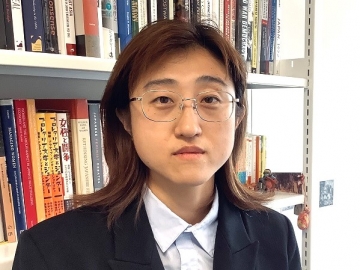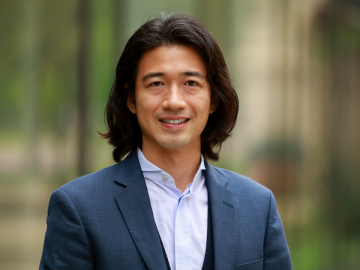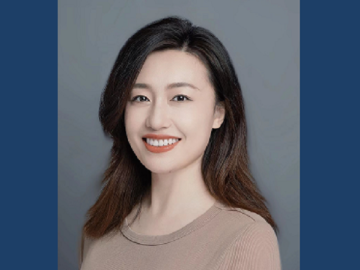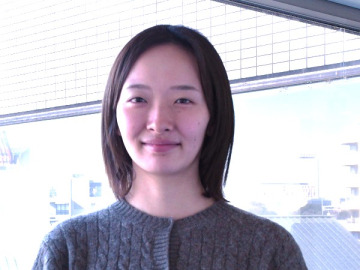
LEE Juhee, Assistant Professor
Tenkō novels by proletarian writers in the 1930s
I research tenkō novels written in Japan in the 1930s. Tenkō, a term that generally means conversion, specifically refers to breaking away from socialism in the context of that period in Japan.
The concept of “tenkō” appeared in the mid-1920s and had become widely known throughout the Japanese Empire by the mid-1930s. The backdrop to this is a strong connection to the Japanese government’s implementation in late 1932 of judicial policy absolving arrest for ideological offenses violating the Peace Preservation Law (a law established to clamp down on anarchist and communist movements) on the condition of ideological conversion. Through this judicial policy, which later came to be called the “tenkō system” by researchers, proletarian writers (leftist writers possessing socialist ideology who wrote about the harsh realities of laborers and class struggles) who were imprisoned also committed tenkō and before long resumed writing novels after being released from prison. I have defined the collection of novels produced primarily by these writers on the theme of tenkō as tenkō novels and have conducted research on them.
Tenkō novels written in the form of the I-novel
Most tenkō novels are written in the form of the I-novel in which the main character can be understood by readers to be the author. The I-novel is a genre of Japanese confessional literature whereby the author makes his own personal life the subject of the novel. However, the veracity of self-disclosure within the story is not guaranteed since it is premised on the fictionality of the novel.
Why are the tenkō novels written in the form of the I-novel? As I considered this, I realized the word “tenkō” came to encompass two meanings due to the tenkō system of the 1930s. Namely, “tenkō” as the literal meaning of “the act of changing internal ideology,” and “tenkō” as “the confessional act of stating such change of ideology to judicial authorities.”
What is important here is that the above two acts are not necessarily in agreement. The tenkō system at that time required the submission of a personal account recording a change of ideology as a basis for judging whether conversion of ideological offense existed, but in some cases the contents of that personal account recording conversion was in fact a fabrication and the person’s true feelings had not changed. However, even if judicial authorities realized this possibility, the tenkō system itself would not have been validated unless they pretended otherwise. In other words, the tenkō system was built on the forced fiction that a confession reflects one’s internal state.
At this point, I believe some tenkō writers likely utilized the form of the I-novel, a genre of self-confession premised on fictionality, as a mirror reflecting the act of confessional tenkō carried out in the judicial setting. They appear to have indicated the message that the tenkō system, which absolved ideological offenses based on internal confessions, is nothing but a fiction similar to the I-novel the reader is reading now.
What can be read from the novella, “White Night” (“Byakuya,” 1934)
“White Night” (“Byakuya,” 1934) by Tomoyoshi Murayama is well known as the first tenkō novel. In this novella, there is a scene where the wife of the main character, who has committed tenkō and returned home, reveals an affair with their political comrade who remains unconverted and imprisoned. Rather than the main character being angry, he worries that he stands in the way of the realization of their love, but even so concludes he is just not able to let go of his wife. Based on the scenario that the main character is touched by the love between his wife and the non-tenkō comrade, it can be interpreted that the author who committed tenkō believes remaining unconverted is still correct. However, in the wife’s confession that establishes such an interpretation is the lingering possibility that it may actually be a lie. That is because the first-person narration of a novel has the effect of making the reader doubt its veracity.
I think the wife’s unreliable confession reflects the I-novelistic framework of this novella “White Night,” which depicts the author’s own life premised on the novel’s fictionality. It also points to the nature of the confessional tenkō previously carried out by the writer, Murayama. I believe that through this novel Murayama tried to indicate in a roundabout way how the confessions made in the judicial setting can contain fabrications.
I have examined examples of tenkō novels like “White Night,” which thematized the fictive nature of self-disclosure in the I-novel, in an attempt to understand from them how they expose the deceit of the tenkō system involving internal confessions.
Probing the 1950s backdrop to the rise of research on tenkō novels
While researching tenkō novels from the 1930s, I realized there was a rise in academic and critical discussions concerning tenkō novels and tenkō itself in the mid-1950s. This is also around the time when the literary history category of tenkō literature and the definition of tenkō frequently utilized even now appeared, the latter referring to “an ideological change forced by state power” (Kyōdō Kenkyū Tenkō, edited by Shisō no Kagaku Kenkyūkai). This period in Japan coincides with a time when a cold-war system hinging on an anti-communism ideology was being constructed. With the establishment of the People’s Republic of China and outbreak of the Korean War, amid a growing sense of crisis toward the rise of the Communist Bloc, the Japanese government started moving toward rearmament and centralization of police organization. Conceivably, these developments called to mind the ideological suppression of the 1930s, which was likely behind the onset of the 1950s discussions on tenkō. Furthermore, in this period autobiographical literature from the West on the topic of breaking from communism was translated and garnered attention as “tenkō literature,” becoming a factor encouraging research on tenkō literature in Japan.
In the future, I intend to research social conditions in the 1950s to reassess how perceptions that continue to this day about 1930s tenkō and tenkō literature were first formed and established as a part of the post-war cold war culture.
Coverage/Constitution: AIMONO Keiko
Cooperation: Graduate School of Political Science, Waseda University, J-School










